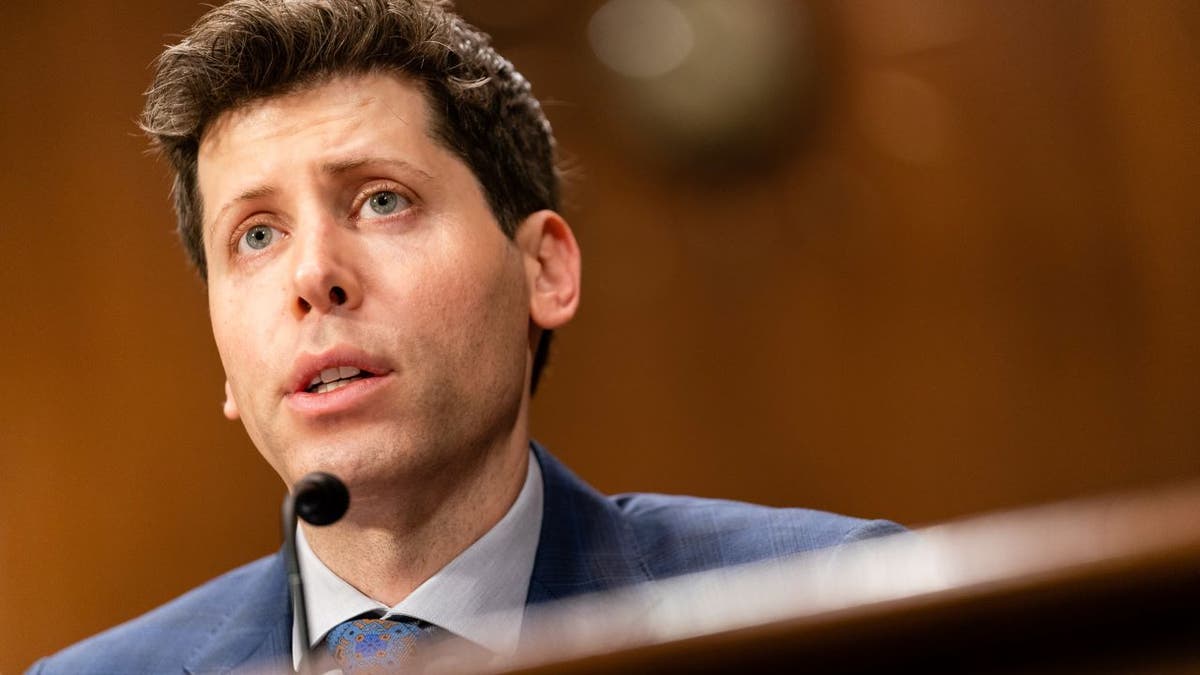Fox News Flash top headlines for May 19
Fox News Flash top headlines are here. Check out what's clicking on Foxnews.com.
Senate Majority Leader Chuck Schumer is attempting to spearhead legislation that will set parameters around the development and use of artificial intelligence.
The arch-Democrat is meeting with Sens. Mike Rounds, Martin Heinrich and Todd Young as part of a bipartisan exploratory group, NPR reported Thursday.
"Congress must move quickly," Schumer said Thursday from the Senate floor. "Many AI experts have pointed out that the government must have a role in how this technology enters our lives. Even leaders of the industry say they welcome regulation."
Schumer says that regulation on the growing technology must be "fast-moving" to keep up with the rapidly changing landscape of what artificial intelligence is capable of doing.
OPENAI CEO SAM ALTMAN INVITED FEDERAL REGULATION ON ARTIFICIAL INTELLIGENCE

Senate Majority Leader Chuck Schumer of N.Y., speaks during a news conference on Capitol Hill in Washington, D.C. (AP Photo/Manuel Balce Ceneta)
"So if we are to fulfill our role properly, our approach to AI must be fast-moving. We can't move so fast that we do flawed legislation, but there's no time for waste or delay or sitting back," he said.
AI 'VOICE CLONE' SCAMS INCREASINGLY HITTING ELDERLY AMERICANS, SENATORS WARN

The ChatGPT chat screen on a laptop computer and logo displayed on a smartphone. (Gabby Jones/Bloomberg via Getty Images)
Artificial intelligence company OpenAI launched an iOS application for its ChatGPT program the same day Schumer spoke at the Senate.
Announced in November 2022, ChatGPT, or Chat Generative Pre-Trained Transformer, is a chatbot built atop the parent company’s GPT-3 series of language models.
SENATE WARNED OF ‘PERFECT STORM’ LEADING TO EMERGING AI DISASTER: ‘DEMOCRACY ITSELF IS THREATENED’
The platform can answer questions directly and works like a search engine. The free AI chat interface signed up 100 million users in just two months after its launch on Nov. 30, 2022.

Sam Altman, chief executive officer and co-founder of OpenAI, speaks during a Senate Judiciary Subcommittee hearing in Washington, D.C. (Getty)
"We have to raise the level of understanding of the issues for the entire body, bring in experts, make sure we hear from all sides and start trying to discern what some of the next steps and ... the things that we need to do to make good decisions about how to structure a response to all this," Schumer said.
CLICK HERE TO GET THE FOX NEWS APP
Schumer stressed that bipartisan concern surrounding the technology is an encouraging factor in pursuing the legislation.
"When the Senate passed CHIPS and Science, both sides came together on an issue that impacted the nation, involved a lot of committees, inputs and views — much like AI will," Schumer said. "Because there is so much bipartisan overlap in CHIPS and Science as there is in AI, it makes it a lot easier to do this in a way that brings bipartisan groups together from the very beginning."













































